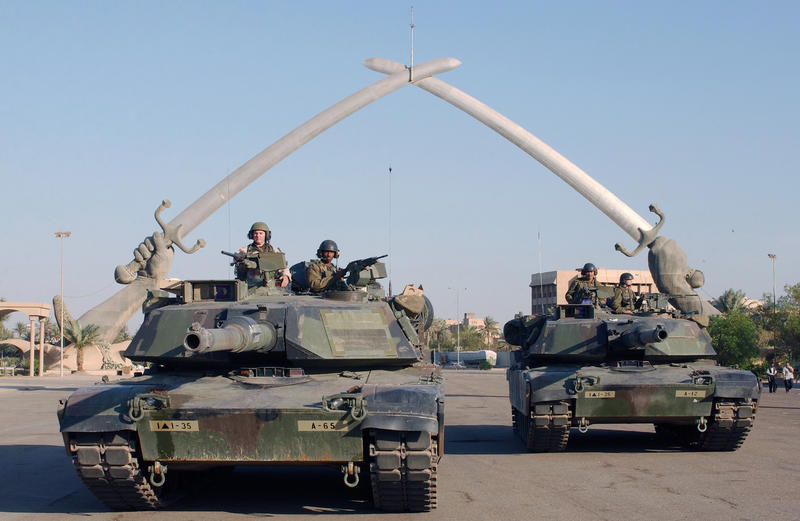Taking Stock of Iraq 15 Years After The US Invasion

In March 2003, the U.S. invaded Iraq--in what turned out to be a baseless search for hidden “weapons of mass destruction.” Fifteen years later, we are still dealing with the deadly fallout of the decision to go to war.
This hour, how has the Iraq War impacted Iraqis, Americans, and the world? We talk with a British-Iraqi journalist and a foreign policy expert, and hear from veterans and Iraqis now living in Connecticut.
Earlier this month, Iraqis went to the polls to vote on a new government--the first election since the fall of ISIS. We find out what the results mean for the country.
Are you an Iraq war veteran or an Iraqi who resettled in Connecticut?
Mina Al Oraibi - Editor in Chief of The National in Abu Dhabi. She is a British-Iraqi journalist and political analyst with a focus on Iraq (@AlOraibi)
Emma Sky- Author of Unraveling: High Hopes and Missed Opportunities in Iraq, and a senior fellow at the Jackson Institute at Yale, where she teaches about Middle East politics
Tim Coon - Connecticut native and retired Colonel in the U.S. Army Reserve. He served in Baquba, Iraq from 2006-2007, assigned to a Military Transition Team to train an Iraqi Army Unit
Ali Al-Saadi - Iraqi refugee and former translator for the U.S. Army in Iraq. He lives in New Haven
READING LIST:
New York Times: The Way Forward in Iraq (Mina Al Oraibi, May 2018)- “An alliance between Mr. Sadr and Mr. Abadi would move Iraq toward a more stable, inclusive and less corrupt state of affairs. It would reduce Iran’s grip on the country and create a more balanced set of relations with its neighbors.”
Foreign Affairs: Mission Still Not Accomplished in Iraq: Why the United States Should Not Leave (Emma Sky, November 2017) - “U.S. support is still needed to strengthen the Iraqi state and to discourage other countries in the region from filling the power vacuum. The collapse of Iraq was instrumental in the unraveling of regional order; its stability is key to restoring a balance of power.”
The National: Fifteen years on, Saddam's legacy and the flaws in Iraq's fractured politics (Mina Al Oraibi, April 2018)- “While Saddam Hussein, Bremer, George W Bush and others who played crucial roles in the lead-up to and the immediate aftermath of the 2003 war have much to answer to, it is Iraq’s current political elite who are responsible for its fortunes today.”